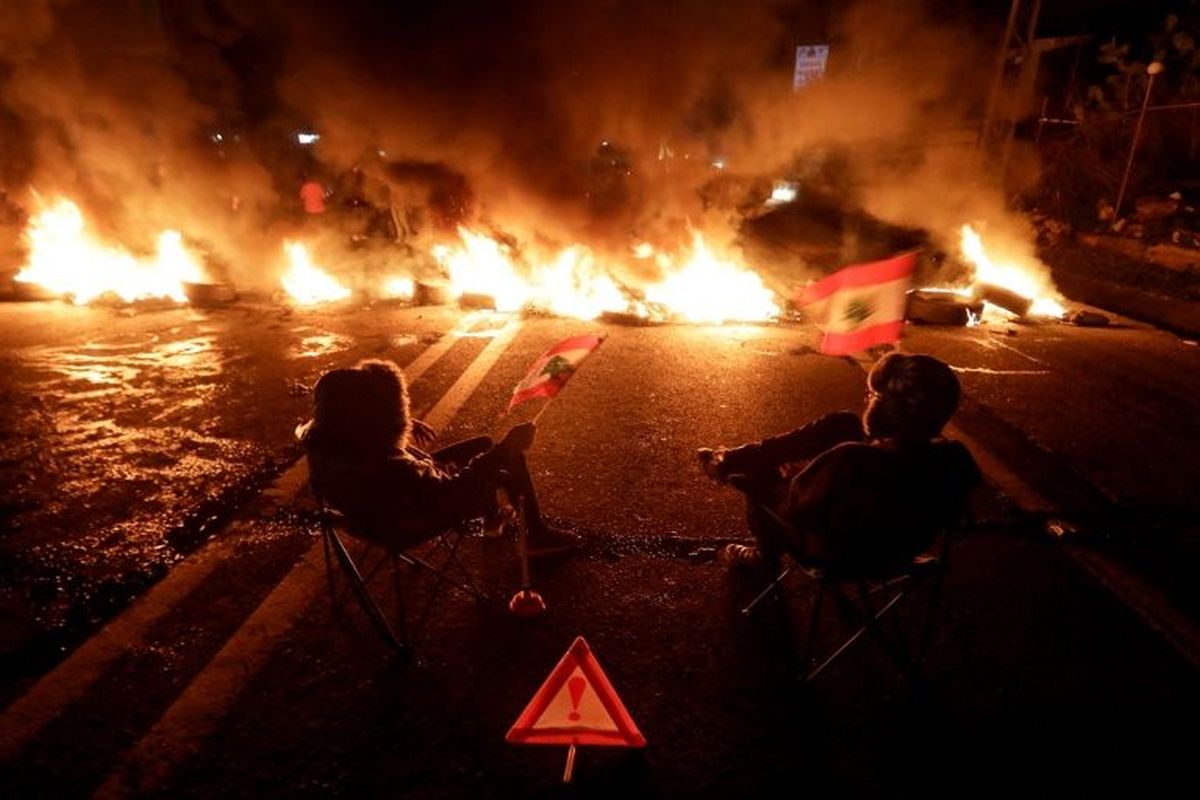Lebanese President expresses concern over Israel’s full withdrawal
Lebanese President Joseph Aoun on Monday voiced concerns over whether Israel would completely withdraw from southern Lebanon on Tuesday.
The protest movement rocking Lebanon since October 17 revived this week as a deepening economic crisis increases pressure to form a new government.

Anti-government protesters were out on the streets of several cities, including Byblos, within minutes of Diab's address (Photo: AFP)
Lebanon on Tuesday ended a painful wait by unveiling a new cabinet line-up, but the government was promptly scorned by protesters and faces the Herculean task of saving a collapsing economy.
More than a month after he was designated with backing from the powerful Shiite movement Hezbollah and nearly three after his predecessor Saad Hariri resigned under pressure from the street, Prime Minister Hassan Diab announced his cabinet of 20 ministers.
Advertisement
The academic and former education minister, who was little-known in Lebanon until last month, insisted in his first comments as premier that his cabinet was a technocratic one that would strive to meet protesters’ demands.
Advertisement
He said his government “will strive to meet their demands for an independent judiciary, for the recovery of embezzled funds, for the fight against illegal gains”.
On January 19, clashes broke out between police and protesters in Lebanese, that left at least 220 people injured on both sides in the highest such tally in three months of anti-establishment demonstrations.
The protest movement rocking Lebanon since October 17 revived this week as a deepening economic crisis increases pressure to form a new government.
The violence began after dozens of protesters — some concealing their faces in scarves — threw rocks and large plant pots at police guarding the road leading up to parliament.
Earlier, hundreds of journalists staged a rally outside the Interior Ministry in Beirut against the anti-riot polices use of excessive force against demonstrators in recent days.
The government, which is scheduled to meet on Wednesday for the first time, includes the country’s first-ever female defence minister, Zeina Akar, and five other women.
The post of foreign minister, which had been held by President Michel Aoun’s controversial son-in-law Gebran Bassil, was handed to respected diplomat Nassif Hitti.
Last month, protesters took to the street in Lebanon and asked the banks to allow them to withdraw more money.
Anti-government protesters, who largely blame the country’s dire economy on corrupt politicians, say the limits are illegal and have turned their fury against bank officials and the financial sector.
The demonstrators said that they refused Diab’s appointment because it would empower corrupted political parties who were adopting the same old concept of arguing about shares in the government, which should not be the case amid the current pressing economic and financial challenges prevailing in the country.
(With inputs from agency)
Advertisement